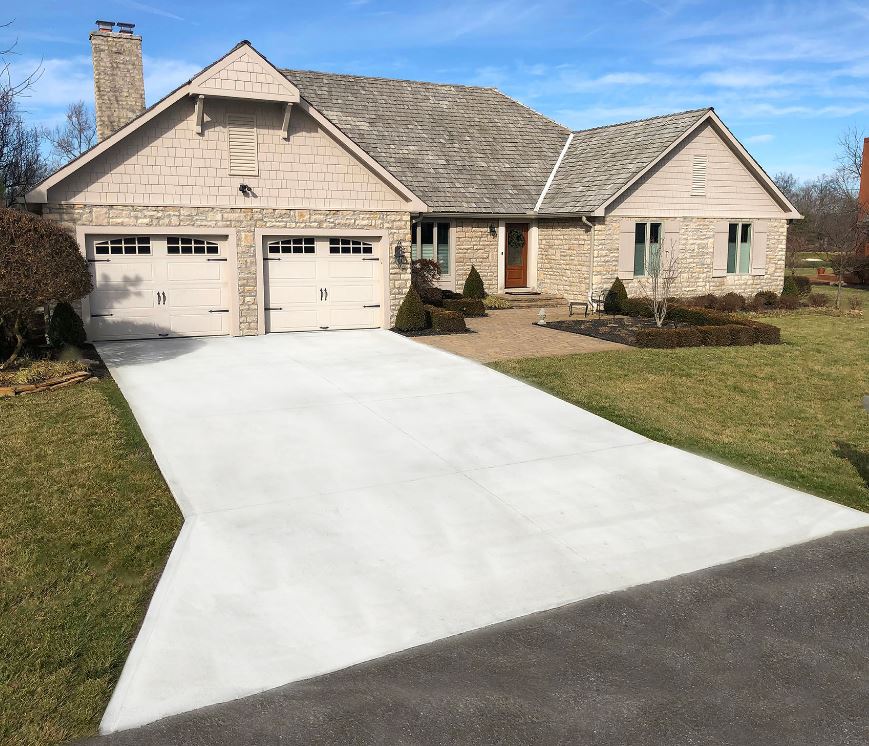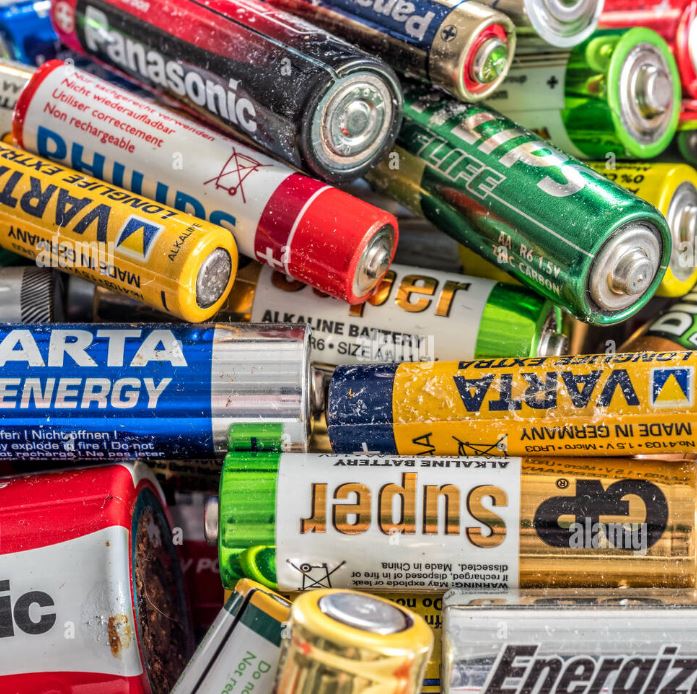Why Would You Choose Concrete Driveway for Your Property?
Why Would You Choose a Concrete Driveway for Your Property?
When it comes to enhancing your home’s curb appeal and functionality, the driveway plays a crucial role. Not only does it serve as a practical space for parking vehicles, but it also contributes significantly to your property’s overall aesthetic. Among the various driveway materials available—such as asphalt, gravel, pavers, and concrete—concrete stands out as one of the best choices for homeowners.
But why should you choose a concrete driveway over other options? In this comprehensive guide, we’ll explore the benefits of concrete driveways, their long-term value, and why they might be the perfect investment for your property.
[ruby_related heading=”More Read” total=3 layout=1 offset=5]
1. Durability and Longevity
One of the biggest advantages of a concrete driveway is its exceptional durability. Concrete is known for its strength and ability to withstand heavy loads, making it ideal for:
- Vehicle traffic (including SUVs, trucks, and RVs)
- Harsh weather conditions (freeze-thaw cycles, extreme heat, and heavy rain)
- Everyday wear and tear
Unlike asphalt, which can soften in extreme heat, or gravel, which shifts and requires constant maintenance, concrete maintains its structural integrity for decades. A well-installed concrete driveway can last 30 to 40 years or more with minimal upkeep.
How Does Concrete Compare to Other Materials?
| Material | Average Lifespan | Maintenance Needs |
|---|---|---|
| Concrete | 30-40+ years | Low (sealing every few years) |
| Asphalt | 15-20 years | Moderate (resurfacing every 5-10 years) |
| Gravel | 5-10 years | High (frequent raking and replenishing) |
| Pavers | 20-25 years | Moderate (weed control, joint sand replenishment) |
As you can see, concrete outperforms most alternatives in terms of longevity, making it a cost-effective long-term solution.
2. Low Maintenance Requirements
Homeowners love concrete driveways because they require very little maintenance compared to other materials. Here’s what you can expect:
- No Frequent Repairs: Unlike asphalt, which develops cracks and potholes over time, concrete remains stable with minimal cracking (if properly installed).
- Easy Cleaning: A simple pressure wash or hose-down can keep your driveway looking fresh.
- Sealing (Optional): While not always necessary, applying a sealant every 3-5 years can enhance durability and stain resistance.
Maintenance Comparison:
- Asphalt: Needs resealing every 2-3 years, repairs for cracks and potholes.
- Gravel: Requires regular raking, weed control, and replenishment.
- Pavers: Needs joint sand refills and weed prevention.
Concrete eliminates most of these hassles, saving you time and money in the long run.
3. Aesthetic Appeal and Customization
Gone are the days when concrete driveways were just dull gray slabs. Modern concrete offers endless design possibilities, allowing homeowners to match their driveway to their home’s architectural style.
Popular Concrete Driveway Design Options:
✅ Stamped Concrete
- Mimics the look of brick, stone, or tile.
- Adds texture and elegance without the high cost of natural materials.
✅ Stained or Dyed Concrete
- Available in various colors (earth tones, modern grays, bold hues).
- Creates a unique, upscale appearance.
✅ Exposed Aggregate
- Reveals small stones for a slip-resistant, decorative finish.
- Great for a natural, textured look.
✅ Polished Concrete
- Smooth, glossy finish that enhances modern homes.
- Resistant to stains and easy to clean.
With these options, your driveway can become a standout feature rather than just a functional necessity.
4. Cost-Effectiveness Over Time
While the initial cost of a concrete driveway may be higher than asphalt or gravel, its long-term value is unmatched.
Cost Comparison (Average Installation Costs per Square Foot):
| Material | Initial Cost | Long-Term Cost (Over 30 Years) |
|---|---|---|
| Concrete | 6−6−12 | Low (minimal repairs) |
| Asphalt | 3−3−7 | Moderate (resurfacing every 5-10 years) |
| Gravel | 1−1−3 | High (constant replenishment) |
| Pavers | 10−10−20 | Moderate (joint maintenance, possible shifting) |
Although concrete has a higher upfront cost, its durability and low maintenance make it a smarter investment over decades.
5. Weather Resistance
Concrete performs exceptionally well in various climates:
- Hot Weather: Unlike asphalt, which can soften and become sticky in extreme heat, concrete remains stable.
- Cold Climates: Properly mixed and sealed concrete can resist freeze-thaw cycles without cracking.
- Rain & Moisture: Concrete’s solid surface prevents water absorption, reducing the risk of erosion or puddles.
Why Does This Matter?
- Less cracking compared to asphalt in fluctuating temperatures.
- No rutting or shifting like gravel in heavy rain.
- Better traction when textured correctly (exposed aggregate or brushed finishes).
6. Increased Property Value
A well-designed concrete driveway boosts curb appeal and home value. Potential buyers appreciate:
- Durability (they won’t need to replace it soon).
- Modern aesthetics (stamped or stained options look high-end).
- Low maintenance (a selling point for busy homeowners).
Real estate experts suggest that a quality driveway can increase property value by 5-10%, making concrete a wise investment if you plan to sell in the future.
7. Environmentally Friendly Option
Concrete is more sustainable than many alternatives because:
- It’s made from natural materials (cement, water, aggregates).
- It has a long lifespan, reducing the need for replacements.
- It can be recycled at the end of its use.
- Its light color reflects heat (unlike asphalt, which contributes to urban heat islands).
For eco-conscious homeowners, concrete is a greener choice compared to petroleum-based asphalt.
8. Safety Benefits
Concrete driveways offer several safety advantages:
- Slip-resistant finishes (brushed, exposed aggregate).
- No loose stones (unlike gravel, which can scatter).
- Better visibility at night (light-colored concrete reflects light).
This makes it a safer option for families with children or elderly residents.
Potential Drawbacks (And How to Overcome Them)
While concrete has many benefits, it’s important to consider:
❌ Initial Cost
- Solution: Though pricier upfront, the long-term savings justify the investment.
❌ Cracking Over Time
- Solution: Proper installation (reinforcement, control joints) and sealing minimize cracks.
❌ Staining (Oil, Grease, etc.)
- Solution: Sealants and prompt cleaning prevent permanent stains.
Despite these minor concerns, the pros far outweigh the cons for most homeowners.
Final Verdict: Is a Concrete Driveway Right for You?
If you’re looking for a durable, low-maintenance, and visually appealing driveway that adds value to your home, concrete is an excellent choice. While the initial cost may be higher, its longevity, customization options, and minimal upkeep make it a smart long-term investment.
Who Should Choose Concrete?
✔ Homeowners planning to stay long-term.
✔ Those who want a high-end look without pavers’ cost.
✔ People in areas with extreme weather conditions.
✔ Eco-conscious buyers looking for sustainable materials.
Who Might Prefer Alternatives?
✖ Those on a very tight budget (gravel or asphalt may be cheaper short-term).
✖ DIY enthusiasts who want to install their own driveway (concrete requires professional installation).
Conclusion
A concrete driveway is more than just a place to park your car—it’s an investment in your home’s functionality, aesthetics, and value. With its unmatched durability, low maintenance, and design flexibility, it’s no surprise that millions of homeowners choose concrete for their driveways.
If you’re ready to upgrade your property with a long-lasting, beautiful driveway, concrete is undoubtedly one of the best options available.







